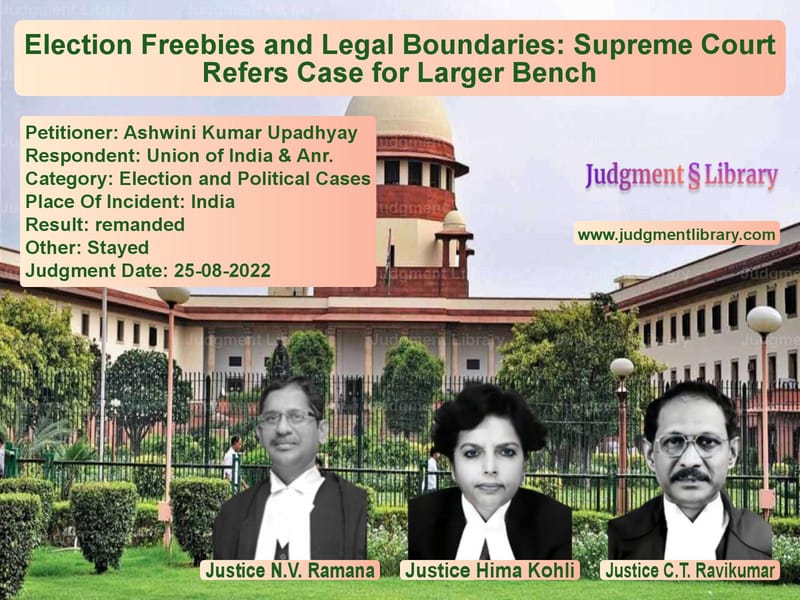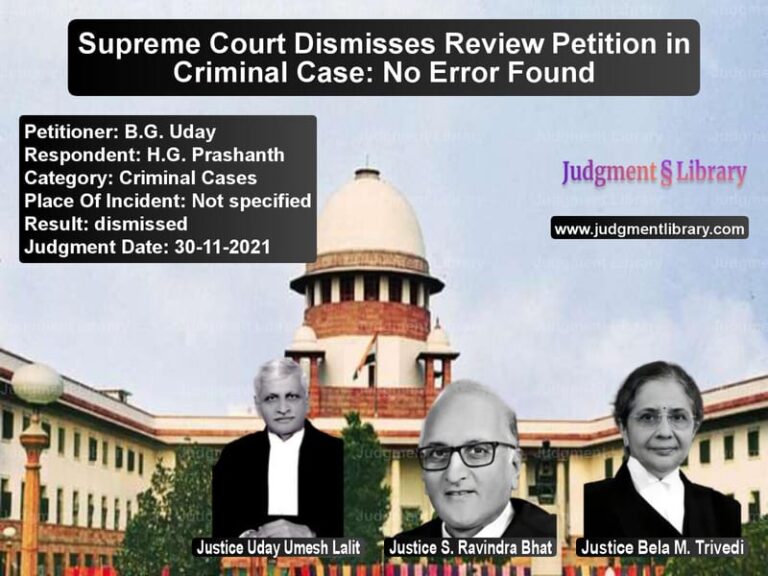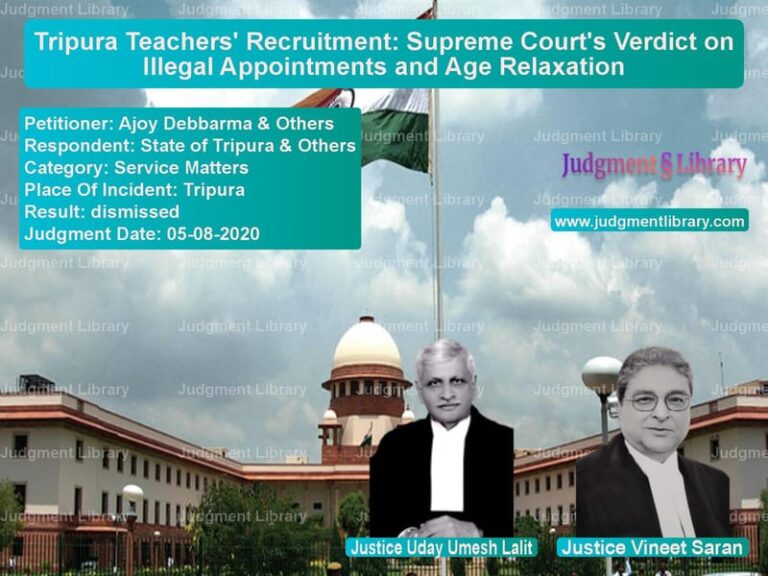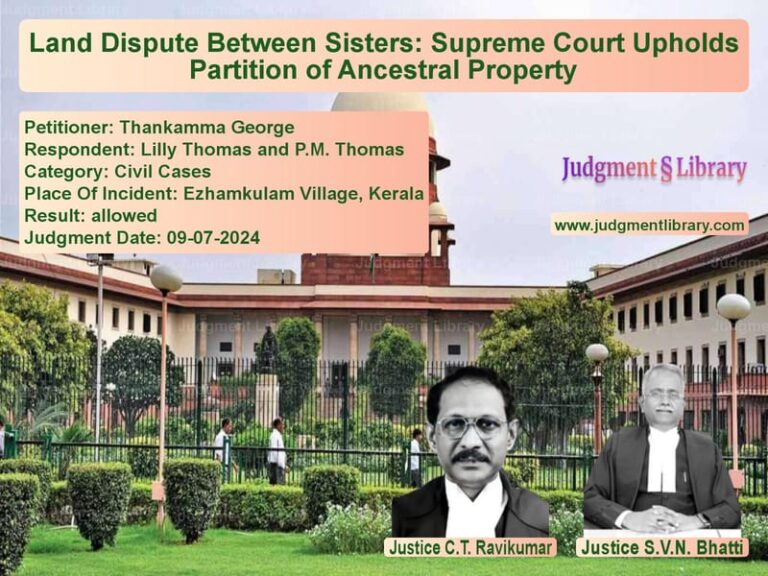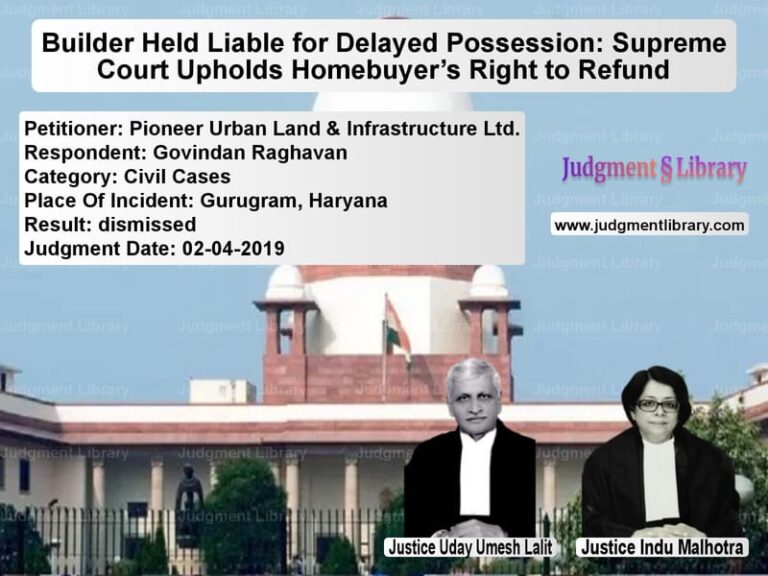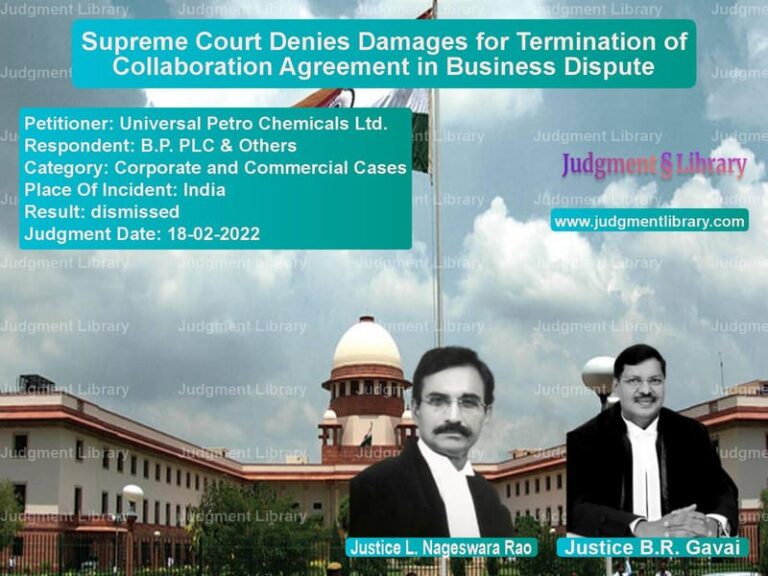Election Freebies and Legal Boundaries: Supreme Court Refers Case for Larger Bench
The case of Ashwini Kumar Upadhyay vs. Union of India & Anr. addresses the controversial issue of election freebies and their impact on the economy and democratic integrity. The Supreme Court was called upon to determine whether political parties could be restricted from offering free goods and services as part of their election manifestos. The Court acknowledged the complexity of the matter and referred it to a larger bench for further deliberation.
Background of the Case
The petitioner, Ashwini Kumar Upadhyay, filed a writ petition challenging the legality of political parties promising and distributing election freebies. The petition argued that such practices were detrimental to economic stability and undermined the fairness of elections. The case also raised concerns about the misuse of taxpayers’ money for electoral gains.
Several other petitions were clubbed together in this case, with two broad categories:
- Petitions challenging pre-election freebies, alleging they unfairly influence voters.
- Petitions questioning post-election benefits distributed without clear developmental objectives.
Legal Issues Before the Court
The Supreme Court examined multiple legal aspects:
- Can election freebies be legally restricted under the Representation of the People Act, 1951?
- Does offering freebies constitute a corrupt electoral practice?
- What is the distinction between legitimate welfare schemes and vote-bank politics?
- Should the Court intervene in fiscal and policy matters of the State?
Arguments Presented
Petitioners’ Arguments
- The petitioners contended that election freebies disrupt fiscal discipline and may lead to economic instability.
- They argued that taxpayers’ money should not be used to fund free distributions merely to increase political popularity.
- The practice creates an unfair advantage for parties that promise excessive benefits, affecting the level playing field in elections.
- The petitioners urged the Court to issue guidelines to regulate pre-election freebies.
Respondents’ (Union of India and Political Parties) Arguments
- The Union of India maintained that its role in this issue was limited and suggested that a Commission be formed to study the matter.
- The Election Commission of India stated that it had no legal authority to regulate election promises made by political parties.
- Political parties intervened in the case, arguing that their promises were part of their policy decisions, which should not be subject to judicial review.
- They contended that welfare measures are essential components of governance and should not be equated with electoral corruption.
Supreme Court’s Observations
On the Impact of Freebies
The Supreme Court, comprising Chief Justice N.V. Ramana, Justice Hima Kohli, and Justice C.T. Ravikumar, acknowledged that freebies could have a detrimental effect on the economy.
“Freebies may create a situation wherein the State Government cannot provide basic amenities due to lack of funds and the State is pushed towards imminent bankruptcy.”
The Court recognized that political parties often use taxpayer money for electoral benefits without adequate financial planning.
On the Role of the Election Commission
The Election Commission argued that its authority is limited to implementing existing electoral laws and that it cannot regulate pre-election promises. The Court noted:
“The Election Commission of India has consistently taken the stand before this Court that it has limited scope to interfere in such promises which are being made by political parties.”
The Court emphasized the need for a broader discussion on whether legislative intervention is required to regulate such practices.
On Judicial Intervention in Policy Matters
The Court observed that while policy decisions generally fall outside its jurisdiction, it must ensure that election practices do not undermine democratic principles.
“This Court has generally stayed its hand when confronted with issues relating to policy or fiscal matters concerning the State, as the same falls outside the ambit of the Court’s jurisdiction.”
However, the Court acknowledged the petitioners’ concerns that fiscal responsibility should not be compromised in the guise of electoral promises.
On the Need for Further Deliberation
The Court determined that the matter required deeper analysis and broader participation. It posed three key questions:
- What is the scope of judicial intervention in regulating election freebies?
- Can the Court issue an enforceable order to curb such practices?
- Would appointing a Commission to study the issue serve any purpose?
Judgment and Its Implications
The Supreme Court did not issue an immediate ruling on the legality of election freebies but referred the matter to a larger bench for further deliberation.
- The petitions were directed to be listed before a three-judge bench.
- The Court sought further submissions from political parties, economic experts, and constitutional scholars.
- The Court emphasized that balancing fiscal responsibility with welfare measures is a critical governance issue.
Significance of the Judgment
- Sets a Precedent for Election Reforms: The case brings into focus the legal and economic consequences of electoral promises.
- Raises Questions About Fiscal Responsibility: The ruling urges political parties to justify their financial commitments.
- Encourages a National Discussion: The case has sparked a debate on whether legislative intervention is necessary to regulate pre-election promises.
Conclusion
The Supreme Court’s ruling in Ashwini Kumar Upadhyay vs. Union of India & Anr. is a landmark case that could shape future electoral laws in India. By referring the matter to a larger bench, the Court has highlighted the need for a structured and informed discussion on balancing welfare initiatives with economic sustainability. As the legal battle continues, the ruling sets the stage for potential electoral reforms that could redefine campaign practices in the country.
Petitioner Name: Ashwini Kumar Upadhyay.Respondent Name: Union of India & Anr..Judgment By: Justice N.V. Ramana, Justice Hima Kohli, Justice C.T. Ravikumar.Place Of Incident: India.Judgment Date: 25-08-2022.
Don’t miss out on the full details! Download the complete judgment in PDF format below and gain valuable insights instantly!
Download Judgment: ashwini-kumar-upadhy-vs-union-of-india-&-anr-supreme-court-of-india-judgment-dated-25-08-2022.pdf
Directly Download Judgment: Directly download this Judgment
See all petitions in Legislative Powers
See all petitions in Public Interest Litigation
See all petitions in Separation of Powers
See all petitions in Judgment by N.V. Ramana
See all petitions in Judgment by Hima Kohli
See all petitions in Judgment by C.T. Ravikumar
See all petitions in Remanded
See all petitions in Stayed
See all petitions in supreme court of India judgments August 2022
See all petitions in 2022 judgments
See all posts in Election and Political Cases Category
See all allowed petitions in Election and Political Cases Category
See all Dismissed petitions in Election and Political Cases Category
See all partially allowed petitions in Election and Political Cases Category

